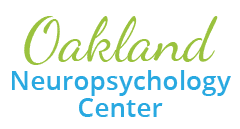
Cognitive Baseline Testing
Cognitive Health as We Age: What to Know
As we get older, changes in memory and thinking are common – and understanding these changes can help stay independent and healthy. Many people choose to have a baseline cognitive evaluation when they are healthy in order to help track thinking skills over time. As people age, memory and focus may change, but having a baseline makes it easier to spot normal shifts versus real concerns. Regular checks can catch small differences early, allowing people to take steps—like brain exercises and healthy habits—to stay sharp. A baseline gives a clear reference point, helping individuals and doctors make informed decisions about brain health.
🧠 What is Cognitive Baseline Testing?
Cognitive baseline testing evaluates areas like:
- Memory
- Attention
- Problem-solving
- Processing speed
- Language skills
This evaluation is not to diagnose a condition but to establish a baseline.
💡 Why It’s Helpful:
- Personalized Treatment:
Since everyone’s brain works a little differently, having a baseline allows healthcare providers to tailor treatment to the individual. If cognitive decline or neurological issues develop, doctors can compare current abilities to the person’s own baseline—not just to general population averages. - Early Detection of Cognitive Issues:
Cognitive baseline testing can help detect subtle changes over time that might indicate early signs of conditions like Alzheimer’s, dementia, or other neurological disorders. Catching these changes early can lead to earlier interventions, potentially slowing progression or improving quality of life.
If you or someone you care about is noticing changes in memory or thinking, don’t wait—talk to your doctor or reach out to Dr. Jin Lee Kim at Oakland Neuropsychology Center. A professional evaluation can be the first step toward clarity, support, and well-being.


